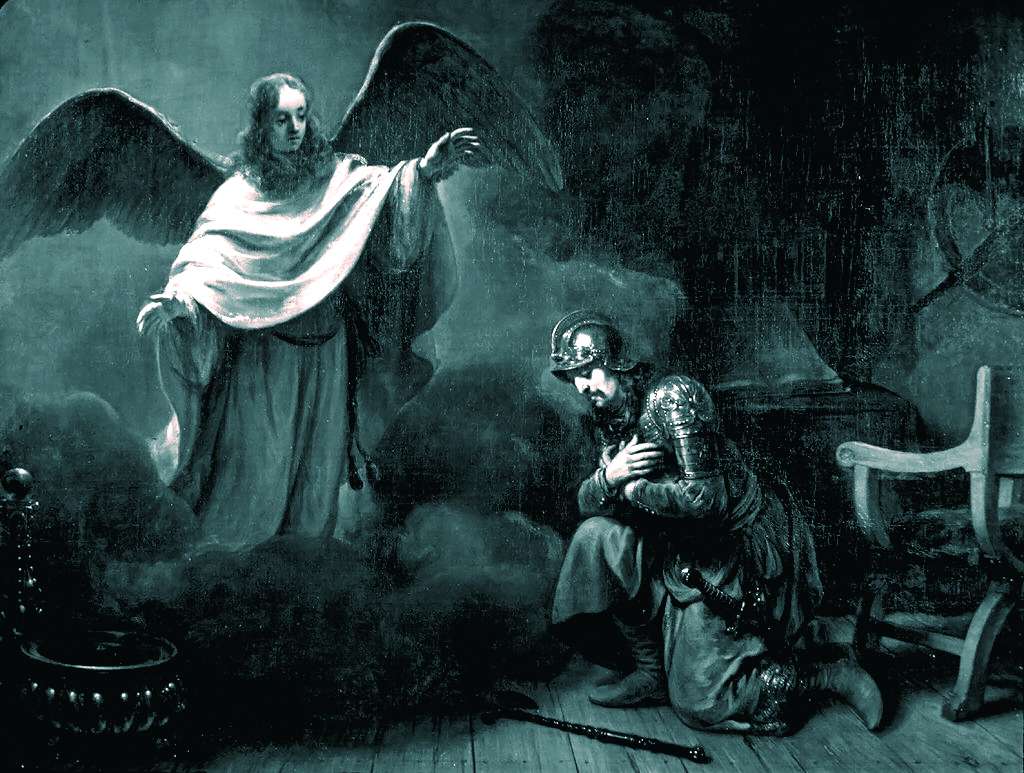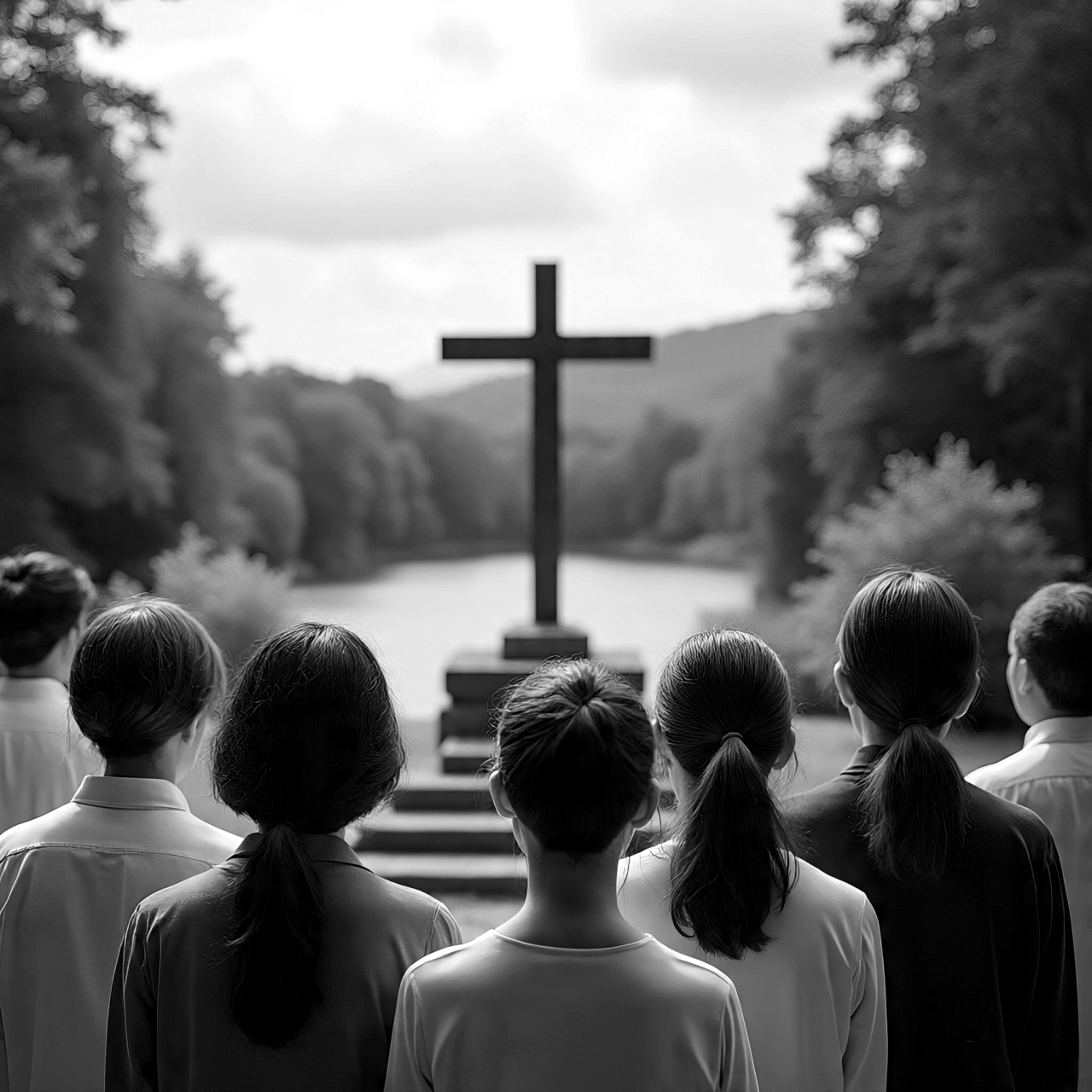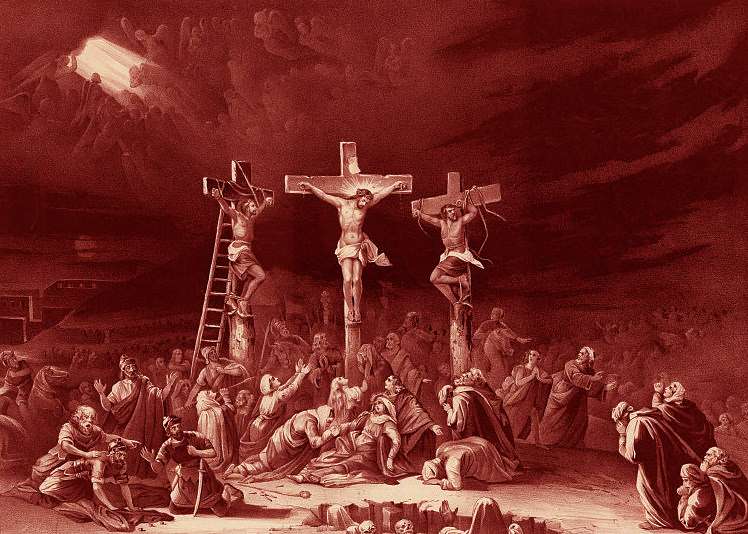

Role of vision in the transformation of the people
Dr. C. T. Luiskutty
Our focus is on the two godly visions mentioned in Acts 10: one to a God-fearing gentile, the other to a very spiritual conservative Jew. The two visions are related to each other and have one common purpose - transformation of people in order to accomplish God's redemptive plan for all nations.
The first vision is that of Cornelius, a man of authority in the Roman military and of esteemed social status. According to the testimony of the Holy Spirt, the inspiration behind the Scriptures, he was a moral and generous man. Not only he was a devout person but his whole family. Though a gentile, he prayed to the living God, the God of Israel, regularly. He might be one of the gentiles, like the high government official from Ethiopia about whom we read in Acts 8, who visited the Temple in Jerusalem during Jewish festivals to show their respect to God Jehovah even though they knew they had to stay in the outer court with no access to the real temple. Their devotion to God was so sincere and deep that they ignored the humiliation of discrimination symbolized by the various walls of separation around the Temple. They were allowed to come only up to the gentile court in the outer periphery of the temple complex. This area was not considered sacred at all, as animals for sacrifice were sold and purchased there and money was exchanged for temple tax. No atmosphere of piety and worship. This was a short-cut for merchants and passengers from one end of the city to the other. The real temple where one could experience the presence of God was not accessible to them, or to women who were allowed a little nearer but not to the courts where cleansing was done and sacrifices were offered.
Cornelius was a boss who had good reputation among his military subordinates and servants. They testified of him, "He is a righteous and God-fearing man, who is respected by all the Jews" (v 22). Thus, though he could be considered a perfect man by all religious standards, God wanted to see a transformation in him so that he will be completely surrendered to the plan of God. God used a vision to bring about this transformation.
The second vision from God came to Peter, a very religious man who was a follower of Jesus Christ. In the early period of Christianity even the disciples' views where heavily influenced by their religious roots in Judaism. Peter and other early Christians wanted to follow Jesus Christ, experience a living relationship with the Lord Jesus, and yet hold on to their Jewish traditions. It took a heavenly vision for Peter to change his attitude towards other people and consequently help other Christians and leaders to do the same. Before His resurrection Jesus told His disciples that they would become His witnesses in Jerusalem, Judea and Samaria even to the ends of the earth, after the Holy Spirit came on them and empowered them. The advent of the promised Holy Spirit in a powerful manner occurred on the Day of Pentecost and they were bearing witness among their own people, the Jews, except in the case of the Ethiopian officer, even that in their own confines. 'Going to the ends of the earth' required getting out of their social, religious, ethnic and geographical comfort zone. And it took two visions to bring this about.
Some Common Characteristics of the Two Visions
Both Cornelius and Peter knew that their visions had heavenly origin. The speaker in the visions addressed them by their names. To the voices they heard, they both responded addressing, "Lord," acknowledging the divine authority behind those voices. Both visions demanded a divinely ordained transformation in their personality and perspective of their religion. Though the instructions they received were revolutionary, both acted according to them. Cornelius sent his servants to fetch Peter from Joppa, and Peter traveled 60 kilometers from Joppa to Caesarea in about two days.
An important fact is that there were no ambiguities in these visions. Cornelius was told that he had to send his men to a particular person -- Simon whose surname was Peter. The Holy Spirit knew his exact address and the name and trade of the person whom he stayed with in Joppa. The clarity and exactness of the vision were compelling enough for him to send a military man under him and two servants to Joppa. He knew that the vision was an answer to his prayers of a long period.
Peter was praying in Joppa. He went to a trance and had the vision of a large sheet that contained all kinds of animals. He was asked to kill and eat them. As eating the meat of 'unclean' animals was against his religious practice, he resisted it even though he knew that the person directing him was the Lord. The vision was repeated three times.
The Purpose of the Heavenly Visions - Transformation of People
Both Cornelius and Peter acted immediately. The following actions were against their nature or religious traditions. Let us look at their transformation and its consequences.
Cornelius was a gentile, a man of good standing in the community as a captain in the Roman army. As a God-fearing man, it would have been natural for him to approach a Jewish priest or a rabbi to answer his theological questions or quench his spiritual thirst. As a result of the vision he had, he sent for a man of low stature staying with a tanner. Did he know that this man belonged to a new sect among the Jews -- a follower of Jesus whom his government had put to death in collusion with the Jewish religious leaders? We are not sure.
• The vision taught him that there was some spiritual experience beyond his devoutness. That's why he sent for Peter. And he acted immediately because he gave great importance to what was going to happen.
• As a result of the vision he became a humble man. In military, ranks are important. But this captain of 100 soldiers fell at Peter's feet in reverence though Peter was a man of low status compared to his.
• Cornelius became a man of faith. He expected something big to happen, and therefore invited his close friends and family members to be present by the time Peter arrived.
• He waited patiently till Peter arrived four days after he saw the vision.
• He had an assurance that they were in the presence of God. They knew what Peter was to tell them was commanded of God. They were ready to listen and obey.
• Even though this, probably, was the first time they heard the Gospel of Jesus Christ, they were very receptive. They believed what they heard and the Holy Spirit fell on them and they began to speak in tongues. We may naturally assume that they all repented of their sin and confessed their faith in Jesus Christ before this happened.
• They were not satisfied with the Spiritual experience of the baptism of the Holy Spirit but obeyed the commandment of water baptism given by Jesus Christ.
• They enjoyed their new experience and wanted to continue in fellowship with Peter and the Jewish brothers who accompanied him, so they asked them to stay with them in Caesarea for a few days before returning to Joppa. This must have been a time of fellowship, learning and growing in faith. Now let us look at the effect of Peter's vision on him.
• Once Peter heard the request of the emissaries from Cornelius he acted immediately and without hesitation because he was able to connect their request to the vision he had from God.
• Peter knew that God had a personal message for him. Though he had become a disciple of Jesus and the chief spokesperson for them, his attitude towards gentiles had not changed. Discipleship is not an event that occurs instantly, but a lifelong process. The message of the vision was that he needed a change in his attitude towards other people. Not only was he sold out to the Jewish idea of what is kosher, but also he considered some people clean and others unclean. Maybe he was afraid that his Jewish brothers would accuse him for having fellowship with gentiles. The vision helped him change these attitudes.
• Peter might have been uncertain about how God would work in a gentile context or how they would receive him. He was effective in preaching to the Jewish crowd on the Day of Pentecost and thousands responded positively. But what about those who assembled in the house of a Roman military officer? The vision and direct communication helped him overcome his apprehension of himself and fear of failure.
• He knew that this was not going to be a solo adventure trip. Therefor he involved others. Six Jewish disciples who probably had the same attitudes as he did accompanied him at his request. They became important witnesses in his future dealings with the church leaders in Jerusalem. Christian ministry is a joint effort.
• Though Peter was the 'man of the hour' and in focus, he acted very humbly. He was there to serve rather than to be served.
• His religion taught him that God was partial to the Jews. His close association with the Jesus should have taught him that it was not true. But it took a vision to bring him to the full realization of the truth that God was not a respecter of persons. Now it was his opportunity to manifest this in his life.
Self-examination: What Personal Transformation is Needed in Us?
We should not be satisfied with a form of godliness; not even with a genuine fear of or religious devotion to a far away God. The birth of Jesus brought God to us. He was the visible image of The invisible God (Colossians 1:15). The death of Jesus Christ brought us close to God. Through Him we both (Jews and gentiles) have access to the God by the Holy Spirit (Ephesians 2:15, 18).
Religion can give you a general awareness of God, and encourage you to be a moral and kind person. Do not stop there. There is more to spirituality. We all need a personal encounter with God which will result in personal transformation. Apostle Paul was a fanatic Jew. Out of his religious fervour, he persecuted the followers of Jesus and even participated in Stephen's murder. But a personal encounter with Jesus in a vision transformed him, made him a genuine disciple of Jesus Christ and was willing to suffer because of his new faith.
Even now God is dealing with religious people through dreams and visions. As a result, people in closed countries where there is no religious freedom or where no Christian literature is available are turning to Christ and experiencing spiritual freedom. As in the case of Cornelius and his household, a vision, if it is from God, will bring a seeker of truth to a close relationship with Jesus Christ and to a Spirit-filled and Spirit guided life. They were filled with the Holy Spirit as they patiently and carefully listened to the Gospel. Also they were humble enough to obey the commandment of Jesus and be baptized by a man of different religious background and social status.
In our present situation, most of us have the luxury of reading the Bible in a language and style we prefer. We have the freedom to attend meetings and listen to preachers. Therefore, we should not be depending too much on visions and dreams (which we had or others had) for guidance in our spiritual life or other personal matters. In the visions we are looking at, they were very specific and in detail. There was no room for various interpretations. Now visions and prophecies may be viewed as confirmation of what God has been communicating to our spirit which is in direct contact with the Holy Spirit.
Cornelius' vision had far reaching effect on him and his gentile associates. They took an effort to bring Peter to their place who preached the Gospel to them. This led to their true conversion, baptism of the Holy Spirit and then became true followers of Jesus Christ. Do we attach great importance to supernatural phenomena like visions and ignore the baptism of the Holy Spirit and discipleship?
Peter had a revolutionary change in his outlook and attitudes towards people whom he considered common and unclean. What transformation occurs in us when we have a Spiritual encounter with Jesus Christ? Do we need to wait for a vision before we wholly surrender our lives to the plan and purpose of God?















